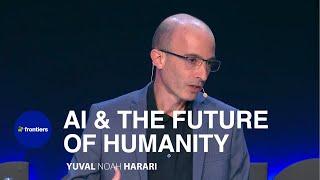????????Don't Miss this!!! ????????
Start your career in AI!!
Click the LINK to register! - https://bit.ly/Free-AI-Skilling-Session
100% FREE ARTIFICIAL INTELLIGENCE Skilling session!!!
Artificial Intelligence (AI) refers to the simulation of human intelligence in machines that are designed to think and act like humans. AI systems can perform tasks that typically require human intelligence, such as learning, reasoning, problem-solving, perception, language understanding, and interaction. AI can be categorized into various types and applications:
Types of AI:
Narrow AI (Weak AI): Specialized for a specific task, such as voice assistants (e.g., Siri, Alexa), recommendation systems (e.g., Netflix, Amazon), or image recognition software.
General AI (Strong AI): A theoretical form of AI that possesses the ability to perform any intellectual task that a human can do. This level of AI does not yet exist.
Superintelligent AI: An advanced form of AI that surpasses human intelligence. This is a hypothetical concept and currently remains in the realm of science fiction.
Applications of AI:
Natural Language Processing (NLP): Enables machines to understand and respond to human language. Examples include chatbots, language translation services, and sentiment analysis tools.
Machine Learning (ML): A subset of AI where machines learn from data to make predictions or decisions. Common algorithms include neural networks, decision trees, and support vector machines.
Computer Vision: Allows machines to interpret and make decisions based on visual data from the world. Used in facial recognition, autonomous vehicles, and medical image analysis.
Robotics: Integrates AI to enable robots to perform tasks autonomously or semi-autonomously. Examples include manufacturing robots, surgical robots, and drones.
Expert Systems: AI systems that emulate the decision-making ability of a human expert. Used in fields such as medical diagnosis, financial analysis, and customer support.
AI continues to evolve and has the potential to significantly impact various industries, including healthcare, finance, transportation, and entertainment. It raises important ethical and societal questions, such as those related to privacy, security, and the future of work, which are actively being explored by researchers and policymakers.
Follows on Facebook : https://www.facebook.com/theneeridaivelai/
Follows on Twitter : https://twitter.com/theneeridaivela
Follows on Instagram : https://www.instagram.com/theneeridaivelai/
Start your career in AI!!
Click the LINK to register! - https://bit.ly/Free-AI-Skilling-Session
100% FREE ARTIFICIAL INTELLIGENCE Skilling session!!!
Artificial Intelligence (AI) refers to the simulation of human intelligence in machines that are designed to think and act like humans. AI systems can perform tasks that typically require human intelligence, such as learning, reasoning, problem-solving, perception, language understanding, and interaction. AI can be categorized into various types and applications:
Types of AI:
Narrow AI (Weak AI): Specialized for a specific task, such as voice assistants (e.g., Siri, Alexa), recommendation systems (e.g., Netflix, Amazon), or image recognition software.
General AI (Strong AI): A theoretical form of AI that possesses the ability to perform any intellectual task that a human can do. This level of AI does not yet exist.
Superintelligent AI: An advanced form of AI that surpasses human intelligence. This is a hypothetical concept and currently remains in the realm of science fiction.
Applications of AI:
Natural Language Processing (NLP): Enables machines to understand and respond to human language. Examples include chatbots, language translation services, and sentiment analysis tools.
Machine Learning (ML): A subset of AI where machines learn from data to make predictions or decisions. Common algorithms include neural networks, decision trees, and support vector machines.
Computer Vision: Allows machines to interpret and make decisions based on visual data from the world. Used in facial recognition, autonomous vehicles, and medical image analysis.
Robotics: Integrates AI to enable robots to perform tasks autonomously or semi-autonomously. Examples include manufacturing robots, surgical robots, and drones.
Expert Systems: AI systems that emulate the decision-making ability of a human expert. Used in fields such as medical diagnosis, financial analysis, and customer support.
AI continues to evolve and has the potential to significantly impact various industries, including healthcare, finance, transportation, and entertainment. It raises important ethical and societal questions, such as those related to privacy, security, and the future of work, which are actively being explored by researchers and policymakers.
Follows on Facebook : https://www.facebook.com/theneeridaivelai/
Follows on Twitter : https://twitter.com/theneeridaivela
Follows on Instagram : https://www.instagram.com/theneeridaivelai/












Comments